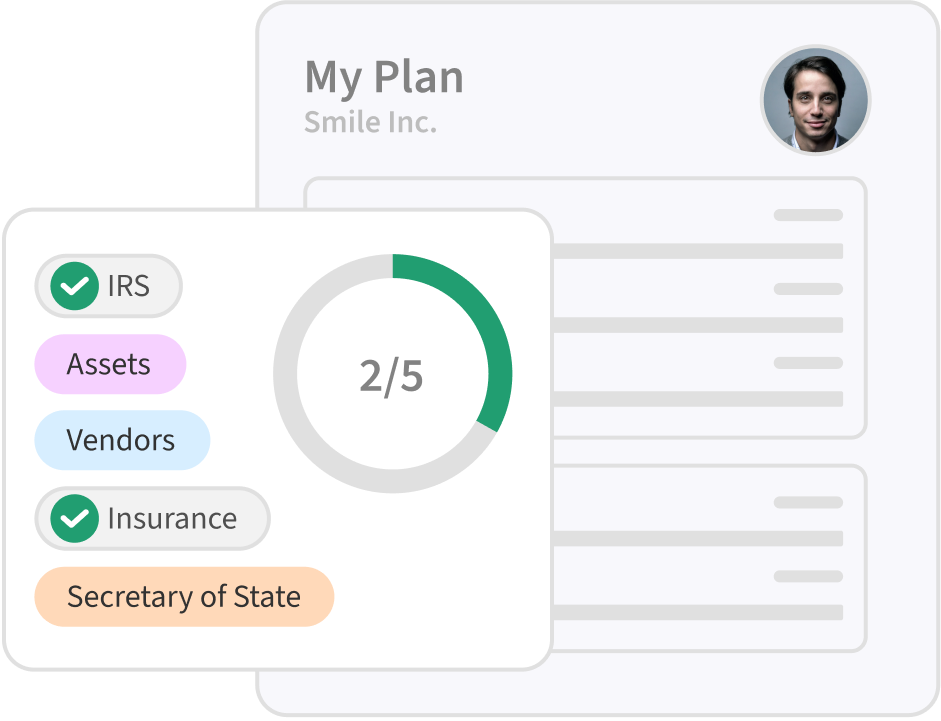There’s no shortage of online resources – blogs and YouTube tutorials – detailing the capital required to start a tech company, but not even a handful that explains the cost of shutting one down.
The lack of information surrounding this topic almost makes it feel taboo – like something meant to be brushed under the carpet and never talked about again. But where does that leave 9 out of 10 startup founders who inevitably face business closure each year?
In this blog, we’ll shed light on the costs of closing a startup, common shutdown expenses, and valuable tips that significantly help cut down business closure expenses.
Key Takeaways
It can cost upwards of $75,000 to shut down a tech startup using traditional means. On the other hand, modern ways of company closure are cheaper and more efficient.
In addition to basic shutdown expenses, tech startups must safely dispose of or sell digital assets and sensitive customer data.
Creating a shutdown plan early on can save startup founders valuable time and resources.
How Much Does It Cost to Shut Down a Tech Startup?
It can cost you upwards of $75,000 to shut down your tech company. The exact figure depends on factors like the company’s size, business structure, contractual obligations, outstanding debts, and legal requirements. There are also indirect costs associated with the shutdown, such as lost business opportunities and revenue.
Let’s go over some typical shutdown expenses you should be aware of.
Common Startup Shutdown Expenses
The following is a list of common expenses you might incur when legally shutting down your business entity.
Paying Expensive Legal and Professional Fees
Closing down a business legally is complicated, so startup owners usually turn to expensive attorneys and accountants for assistance. These legal practitioners help with the following:
Settling debts: Small businesses often rely on loans and other forms of debt financing to sustain operations and are usually strapped for cash, more so when shutting company doors. As such, they pay high legal fees to secure favorable terms with creditors.
Fulfilling tax obligations: Involve filing the final state, federal and local tax returns, employee-related taxes, and ensuring transparency and compliance with the relevant tax authorities. Be wary though, some tax attorneys charge around $400 per hour!
Contrary to what people believe, the traditional method of paying business attorneys and corporate lawyers an arm and a leg isn’t the only option. At SimpleClosure, we help startups legally shut down for a fraction of the cost.
Distributing Employee Severance
Another expense soon-to-shut-down startups may incur is employee severance. We use the word ‘may’ because the obligation to pay severance depends on factors such as your company’s size, the number of employees losing their jobs, and the specific details outlined within the employee contracts.
Note: For a more detailed look at the topic, check out our blog on how to manage employee layoffs and severance.
It’s hard to pin down a severance package number because you have to consider employees’ performance, salary package, position within the company, and a few other factors. But here’s what a baseline severance package looks like:
One to two weeks of pay for each year of service.
Accrued vacation time and unused sick leaves.
Temporarily extending health insurance coverage.
Disposing Physical and Digital Assets
In addition to physical assets, tech startups have to work out how to best dispose/sell digital assets as well.
For the former, you need to work out how much your office equipment and furniture are worth and then handle expenses like marketing, sales negotiation, transportation, and potentially outsourcing the whole process (if you lack the time, skills, or resources to do it yourself).
As far as digital assets are concerned, the following points are worth noting:
Selling Intellectual Property (IP): Intellectual property includes valuable intangible assets like company trademarks, copyrights, and patents. You may need to get these evaluated by a third party (i.e., external appraisers) and then decide to sell them off or let them expire and become part of the public domain.
Canceling Subscriptions: If your company’s main offering is a SaaS (software as a service) product, you’ll need to cancel subscriptions and refund pre-paid fees. The bigger the customer base, the more time-consuming the overall process.
Preserving or Destroying Data: Archiving valuable data makes sense if you want to work within the industry or want to create another startup somewhere down the line. But if this was a one-and-done project, ensure you properly destroy all sensitive data. Although unlikely, data leaks can come back to haunt you in the future, so eliminate potential legal ramifications here and now.
These were some of the main expenses. Now, let’s discuss how we can keep these expenses as low as possible.
Tips on How to Shut Down Your Startup Cheaply
Plan Early
The earlier you create a shutdown plan, the better. Irrespective of the runway you have left, wrapping up operations in a hurry can lead to costly mistakes, not to mention the added stress of juggling multiple things at once.
If you start early, you have ample time to negotiate better deals with creditors, give employees enough time to find new jobs, and dispose of assets in an orderly fashion.
Consider a Remote Workplace
Although not standard practice, going remote has plenty of benefits and is relatively easier to pull off for tech startups and businesses not overly reliant on physical infrastructure. If your company has limited staff, consider going remote for the last few months to avoid paying for heavy expenses like rent and electricity.
Plus, creating a remote environment isn't out of the ordinary in a post-pandemic world where most businesses allow for remote work and use communicative software like Slack, Microsoft Teams, Trello, etc.
Reduce Severance Packages
If you must provide severance, consider alternative severance packages that aren’t centered around large cash payouts. For example, you could offer interview training, access to job boards, and/or extended health coverage. This way, you can remain useful and still preserve much-needed capital.
Cut Down on Unnecessary Legal Expenses
Many failing startups make the mistake of hiring expensive lawyers and accountants to shut down their businesses. That’s because most are unaware that you can legally terminate your company entity without taking the traditional route and dishing out tens of thousands of dollars.
Modern solutions, like the one we offer at SimpleClosure, let you smoothly shut down your business without paying absurdly high legal fees and, in some cases, bring the entire closing process down to just a few weeks!
Get your free founder's guide to shutting down

A comprehensive breakdown of how founders can quickly and easily execute a fully compliant shutdown
Conclusion
To conclude, the cost of shutting a startup down varies significantly based on several factors, primarily the choice of service provider.
SimpleClosure is run by people like you, people who went through the same ordeal and realized that closing a startup is needlessly complex, incredibly expensive, and takes months or years to complete.
That’s why we leverage legal tech, Fintech, and AI to get rid of all the boring bureaucratic and manual paperwork and bring the process down to a few weeks!
So, if you’re interested in a safe and stress-free way of closing your company, get in touch today.
FAQs
What Happens to VC Money if a Startup Fails?
Venture capitalists, or VCs, typically lose all their investment if a startup fails, but exceptions exist. For example, if the failing company has assets it can sell, the VCs may get some of the proceeds because of their preferred stock. However, startup investment is risky, and most VCs know that the chances of success are slim.
How to Tell Investors You Are Shutting Down?
Informing investors that you plan to shut down the company isn’t easy – it’s difficult and sometimes emotional. Here are some tips to make it easier:
Let the news sink in and prepare yourself emotionally.
Schedule an in-person meeting.
Be honest and upfront – there’s no need to sugarcoat.
Even if you (and your partners) gave it your all, sympathize with them.
Answer all questions to the best of your ability.
Continue to provide updates.
Thank them for their support.
How to Close a Limited Company Without Paying Tax?
Closing a limited liability company without paying any taxes is, generally speaking, not feasible. There are specific tax requirements that all companies must fulfill when closing operations. It is, however, possible to reduce the amount of tax you need to pay. To learn how, check out our blog on the tax implications of closing a tech startup.
Can I Close My Limited Company and Open a New One?
Yes, you can but there are plenty of things you need to do before that. First, you must settle all your debts and liabilities. Second, you need to sell or transfer company assets. Third, you must file the necessary paperwork informing relevant agencies of the imminent closure. Fourth, you must inform your creditors and employees that the business is about to shut down.
Finally, you can begin the process of opening a new company. Please note that these are general guidelines and vary from one case to another.


